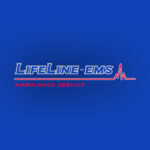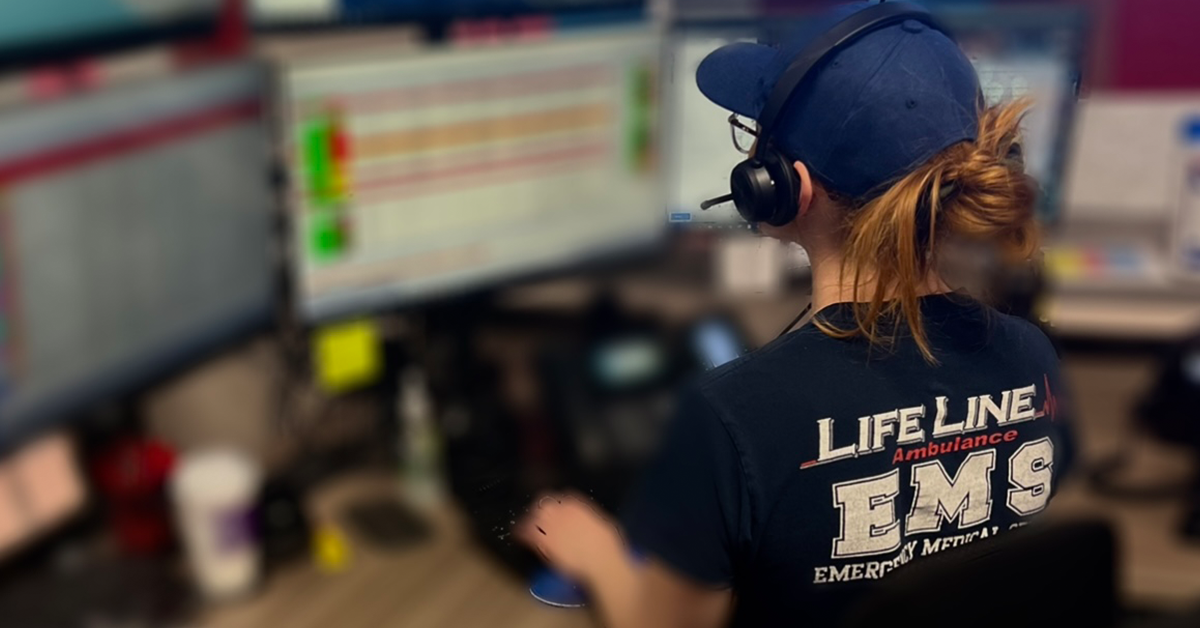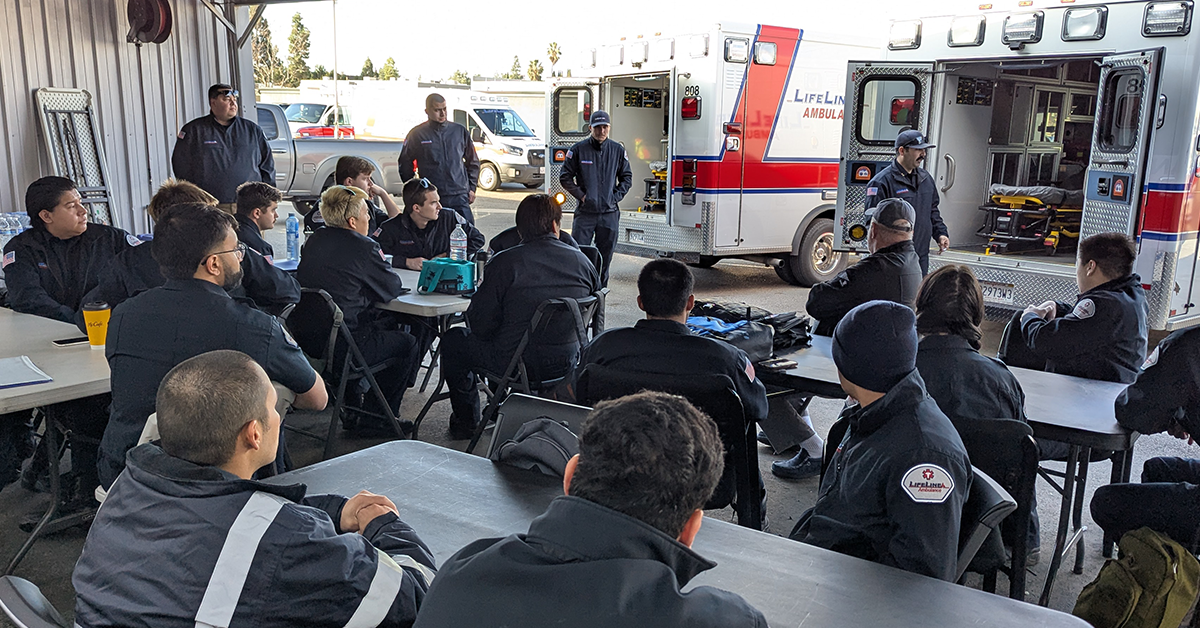When choosing an emergency medical services (EMS) provider, it’s essential to find an organization that not only delivers high-quality medical care but also embodies values that prioritize patients, employees, and the community. LifeLine EMS stands out as a premier EMS provider in Los Angeles and Southern California, offering services grounded in a deep commitment to excellence, compassion, and innovation. This article takes a closer look at the core values that drive LifeLine EMS and explain why they make the organization an exceptional choice for both patients and aspiring EMS professionals.
1. Commitment to Excellence in Patient Care
At the heart of LifeLine EMS is an unwavering commitment to providing exceptional patient care. This core value informs every aspect of the organization’s operations, from the training of EMTs and paramedics to the equipment used and the protocols followed in the field.
High-Quality Medical Care
LifeLine EMS prides itself on delivering the highest standard of emergency medical care. The organization ensures that all EMS personnel are trained to the highest standards, enabling them to handle a wide range of medical emergencies with precision and care.
- Advanced Training and Education: LifeLine EMS invests heavily in training programs for its staff. EMTs and paramedics undergo rigorous training in areas such as advanced life support, trauma care, and pediatric emergencies to ensure they are equipped to handle complex medical scenarios.
- Cutting-Edge Medical Equipment: To support its commitment to excellence, LifeLine EMS equips its ambulances with state-of-the-art medical devices and technology, enabling responders to provide lifesaving interventions efficiently.
- Adherence to Protocols: LifeLine EMS follows best practices and evidence-based protocols to ensure that patients receive the most effective care possible in a timely manner.
Focus on Compassionate Care
Excellence in patient care goes beyond medical expertise—it also includes compassion and empathy. LifeLine EMS understands that patients in emergency situations are often scared, vulnerable, and in need of emotional support in addition to physical care.
- Patient-Centered Approach: EMS personnel at LifeLine EMS are trained to provide not only medical treatment but also comfort and reassurance to patients and their families during stressful situations.
- Clear Communication: Effective communication with patients and their families is a priority. LifeLine EMS ensures that patients understand the care they are receiving and are kept informed throughout the process, easing anxiety and building trust.
2. Dedication to Community Service
LifeLine EMS is deeply committed to the communities it serves. Recognizing the important role EMS providers play in public health and safety, the organization engages in various outreach programs and services that go beyond emergency response.
Public Health Education
One of LifeLine EMS’s core values is to educate the community on health, safety, and emergency preparedness. By empowering individuals with knowledge, the organization helps reduce the number of preventable emergencies and enhances overall public safety.
- First Aid and CPR Training: LifeLine EMS offers first aid and CPR training programs to schools, businesses, and community groups, ensuring that more people are equipped to respond to medical emergencies before professional help arrives.
- Disaster Preparedness Workshops: With natural disasters like earthquakes and wildfires posing risks to Southern California communities, LifeLine EMS provides disaster preparedness workshops that teach residents how to prepare for emergencies and stay safe during critical situations.
Active Community Engagement
In addition to education, LifeLine EMS actively participates in local events, health fairs, and community initiatives, fostering a strong connection between the organization and the communities it serves.
- Health Screenings: LifeLine EMS provides free or low-cost health screenings at community events, giving residents access to essential health services and promoting wellness.
- Charitable Initiatives: The organization supports various local charities and community causes, further demonstrating its commitment to the well-being of the communities it serves.
3. Emphasis on Employee Well-Being and Growth
At LifeLine EMS, employees are valued as the backbone of the organization’s success. By fostering a positive work environment and supporting professional growth, LifeLine EMS ensures that its EMS personnel are motivated, well-prepared, and able to deliver high-quality care in the field.
Supportive Work Environment
LifeLine EMS understands that the physical and emotional demands of EMS work can take a toll on its employees. To address this, the organization emphasizes creating a supportive work environment where employees feel valued and respected.
- Work-Life Balance: LifeLine EMS recognizes the importance of work-life balance and strives to provide schedules that allow employees to manage both their professional and personal lives.
- Mental Health Support: The organization encourages a culture of openness about mental health and provides resources such as counseling services and peer support programs to help EMS personnel cope with the stresses of the job.
- Teamwork and Camaraderie: LifeLine EMS fosters a culture of teamwork, where employees work together to provide the best possible care and support each other on and off the job.
Professional Development and Growth Opportunities
LifeLine EMS is dedicated to the professional development of its employees, offering a wide range of opportunities for career advancement and skill-building.
- Ongoing Training and Certifications: EMS personnel are encouraged to pursue advanced certifications in areas such as Advanced Cardiac Life Support (ACLS) and Pediatric Advanced Life Support (PALS). These certifications not only improve patient care but also open doors to career growth.
- Leadership Training: LifeLine EMS offers leadership development programs for employees who wish to advance into supervisory or managerial roles. These programs help develop the skills necessary to lead teams and manage complex operations.
- Career Pathways: Whether employees want to advance from EMT to Paramedic or move into specialized roles such as critical care transport, LifeLine EMS provides clear career pathways and the support needed to achieve career goals.
4. Innovation and Continuous Improvement
In a rapidly evolving field like EMS, innovation and continuous improvement are essential for staying ahead. LifeLine EMS is committed to adopting new technologies and improving its operations to provide better care and more efficient services.
Embracing Technology in EMS
LifeLine EMS uses cutting-edge technology to enhance its operations and improve patient outcomes. By incorporating advanced tools and systems, the organization ensures that its EMS teams are equipped to respond to emergencies with precision and speed.
- Telemedicine Integration: LifeLine EMS utilizes telemedicine to connect EMTs and paramedics with remote physicians in real-time, allowing for more accurate patient assessments and treatment decisions in the field.
- Electronic Patient Care Reporting (ePCR): The organization has implemented ePCR systems, which streamline the documentation process and allow for seamless communication between EMS personnel and receiving hospitals, ensuring continuity of care.
- GPS-Enabled Dispatch Systems: Advanced dispatch systems ensure that EMS teams are dispatched quickly and efficiently, reducing response times and improving patient outcomes.
Commitment to Continuous Improvement
LifeLine EMS believes in constantly evaluating its services and processes to identify areas for improvement. By focusing on quality assurance and performance metrics, the organization maintains a high standard of care while continuously looking for ways to improve.
- Performance Monitoring: LifeLine EMS regularly reviews response times, patient outcomes, and service quality to ensure that its EMS teams are performing at the highest level.
- Feedback Loops: The organization actively seeks feedback from patients, families, and healthcare partners to identify opportunities for improvement and enhance the overall patient experience.
- Training in Best Practices: EMS personnel receive regular training in the latest medical protocols and best practices, ensuring that they are prepared to provide care based on the most up-to-date knowledge and techniques.
5. Ethical Practices and Accountability
LifeLine EMS places a high value on ethical practices and accountability. Integrity is a core component of the organization’s culture, guiding every decision made by the leadership and EMS personnel.
Transparency and Accountability
LifeLine EMS believes in maintaining transparency with patients, families, and healthcare partners. This commitment to openness helps build trust and ensures that the organization remains accountable to the communities it serves.
- Clear Communication: Patients and families are kept informed throughout the emergency response process, ensuring that they understand the care being provided and the next steps in their treatment.
- Ethical Decision-Making: LifeLine EMS operates with a strong ethical framework, ensuring that every decision made prioritizes patient safety and well-being. The organization adheres to all regulations and industry standards to provide safe and effective care.
Keep Reading
Want more? Here are some other blog posts you might be interested in.
In the high-stakes world of emergency medical services, clear and effective communication can mean the difference between life and death. EMS professionals...
Emergency Medical Services is an ever-evolving field that requires constant learning and adaptation. With medical advancements, technological innovations, and increasing public health...
Emergency Medical Services s a high-stress, physically demanding profession that requires dedication, quick decision-making, and resilience. While the rewards of saving lives...






